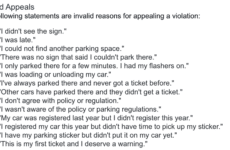By: Mark Fuery
Posted In: News

Photo credit: Lindsay Little
Online criminals set up phony emails disguised as commercial websites such as Ebay. Other criminals are using popular websites or file sharing programs to hide their malicious software. Some users do not take proper precautions when setting up their wireless networks, allowing anyone to log on.
Cyber crime has become a worldwide problem in recent years, and it is on a steady rise. According to fbi.gov, the FBI launched “Operation Web Snare,” which resulted in 116 indictments and 100 convictions in cases in which more than 810,000 victims allegedly lost over $210 million due to various cyber crimes. According to the FBI, however, these arrests only put a small dent into the cyber crime problem in the United States. Although the authorities are coming up with innovative ways to capture these criminals, most of the time, someone is victimized because proper security precautions are not taken by the user. Detective Michael Caruolo has been working in the Criminal Investigations Division with the Newport Police Department for five years. He specializes in computer crime and is currently the only detective on the force who specializes in cyber crime. Caruolo said when he first started working with the department, it received about one report of computer related crime each month. Now the department gets an average of one or two each week. A wide spectrum of crimes are reported, Caruolo said, from simple frauds that cost the victim a relatively small amount to an international multi-million dollar scam that cost a local woman $70,000. A large amount of work goes into investigation of these crimes, and because of the amount of work involved, the Newport police currently do not have the ability to solve all of the complaints that received. The first step towards tracking an alleged criminal, according to Caruolo, is finding the person who used the ISP number that was logged on the fraudulent transaction. An ISP number is a unique number assigned to a user’s computer. Each time a user logs on, the service provider can track exactly what the user was doing at any given time. To find out who was using that ISP number at the time of the crime, Caruolo first has to get a search warrant . After he gets the information on the user, if it is a local case, police can seize the computer. But Caruolo must get another warrant to search the computer. If the case is not local, many times Caruolo will just contact the local authorities elsewhere. “Do you think they are going to fly Detective Caruolo to San Diego, California over a $200 color TV?” Caruolo said.













